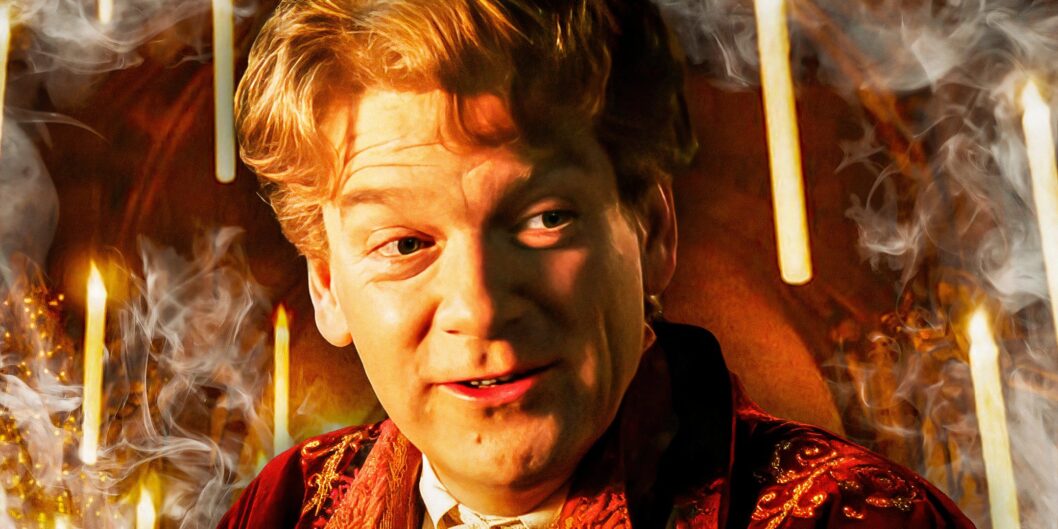Harry Potter’s Cut Moments: Gilderoy Lockhart’s Fate and Neville Longbottom’s Bittersweet Visit
The Harry Potter film series, while beloved worldwide, made notable omissions from J.K. Rowling’s expansive book universe. One such cut involves Gilderoy Lockhart, a character whose story arc takes a darker turn in the source material, particularly in The Order of the Phoenix. This article explores the significance of Lockhart’s fate, alongside a poignant encounter involving Neville Longbottom and his afflicted parents during a visit to St. Mungo’s Hospital.
Gilderoy Lockhart: A Tragic Comedy of Errors
Gilderoy Lockhart, portrayed by Kenneth Branagh in The Chamber of Secrets, is introduced as a boastful wizard claiming a litany of nonexistent heroic deeds. His overinflated ego leads to disastrous consequences when he attempts to erase the memories of Harry Potter and Ron Weasley, only to suffer the curse’s backlash, resulting in his own memory loss.
In the film adaptation, Lockhart’s fate after losing his memory remains largely unaddressed, leaving audiences to wonder about the true aftermath of his character’s downfall. However, in the book, Lockhart’s story continues as he becomes a patient at St. Mungo’s Hospital for Magical Maladies and Injuries, a vital plot element that illustrates the repercussions of his earlier actions.
During a visit to St. Mungo’s, Harry and the Weasley family encounter Lockhart again. Despite being completely unaware of who he is, Lockhart still seems to possess a faint recollection of his fame, showcasing his tendency towards self-absorption. One of the most telling moments occurs when he can successfully sign his name in cursive—a remnant of his former identity.
"They note that while he doesn’t know who he is, he seems to recall being famous," highlights the stark contrast between Lockhart’s past persona and his current state. This juxtaposition raises questions about whether he would exhibit remorse for his past misdeeds had he retained his memories.
Harry’s perspective is particularly poignant; he feels less sympathy for Lockhart, reminding readers that the consequences of Lockhart’s arrogance and deceit are met with karmic justice. While some might argue for Lockhart’s tragic fate as deserving of empathy, Harry’s stance underscores a prevailing theme in the series: accountability.
A Heartbreaking Encounter: Neville Longbottom and His Parents
In stark contrast to Lockhart’s comically tragic tale is the profoundly heartbreaking story of Neville Longbottom, depicted by Matthew Lewis. When Harry and the Weasleys visit St. Mungo’s, they encounter Neville, who is there with his grandmother to see his parents, Alice and Frank Longbottom.
Following a horrific encounter with Bellatrix Lestrange, who tortured them into madness, the Longbottoms now reside in St. Mungo’s. This situation illustrates a graver tragedy—the impact of the wizarding war on families. The Longbottoms, former Aurors who bravely fought against Voldemort, suffer a fate that Neville grapples with throughout the series.
Neville feels embarrassed that his friends witness his parents in such a state, but his grandmother urges him to take pride in their bravery. She encapsulates the emotional weight of this moment, saying, "In many ways, it’s a fate worse than the Potters." This reflects not only the horror of their situation but also the resilience needed to confront it.
Ultimately, Neville’s growth transcends his initial shame. He evolves into a key figure, wielding Gryffindor’s sword to defeat Nagini during the Battle of Hogwarts, showcasing that courage can manifest in unexpected forms.
Conclusion: The Significance of These Stories
The omissions of character fates, like that of Gilderoy Lockhart, and the narrative depth surrounding Neville Longbottom’s family add critical layers to the Harry Potter saga. These stories invite readers and viewers alike to reflect on themes of accountability, bravery, and the long-lasting effects of trauma.
While films streamline narratives for time constraints, these cut moments serve as poignant reminders of the intricate emotional landscapes that Rowling crafted in her books. The impact of these narratives resonates beyond mere storytelling; they challenge the audience to consider the complexities of fame, memory, and the consequences of one’s actions. As the franchise continues to engage fans through spin-offs and themed attractions, the discussions surrounding these lost narratives remain ever relevant, enriching the collective understanding of a universe that has captivated millions.









